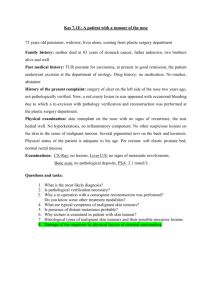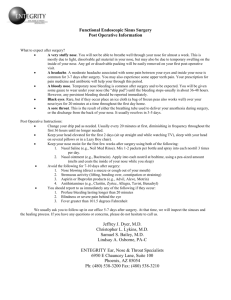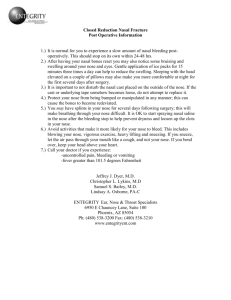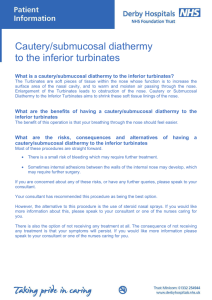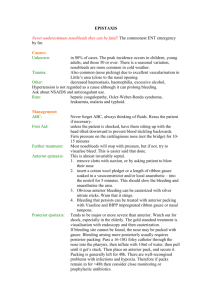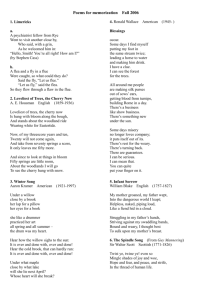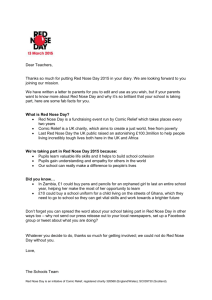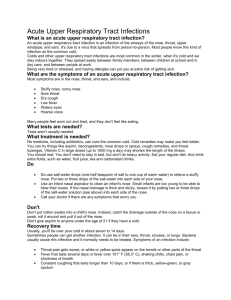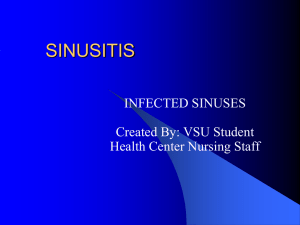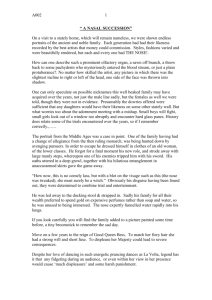External DCR pre and post op advice
advertisement
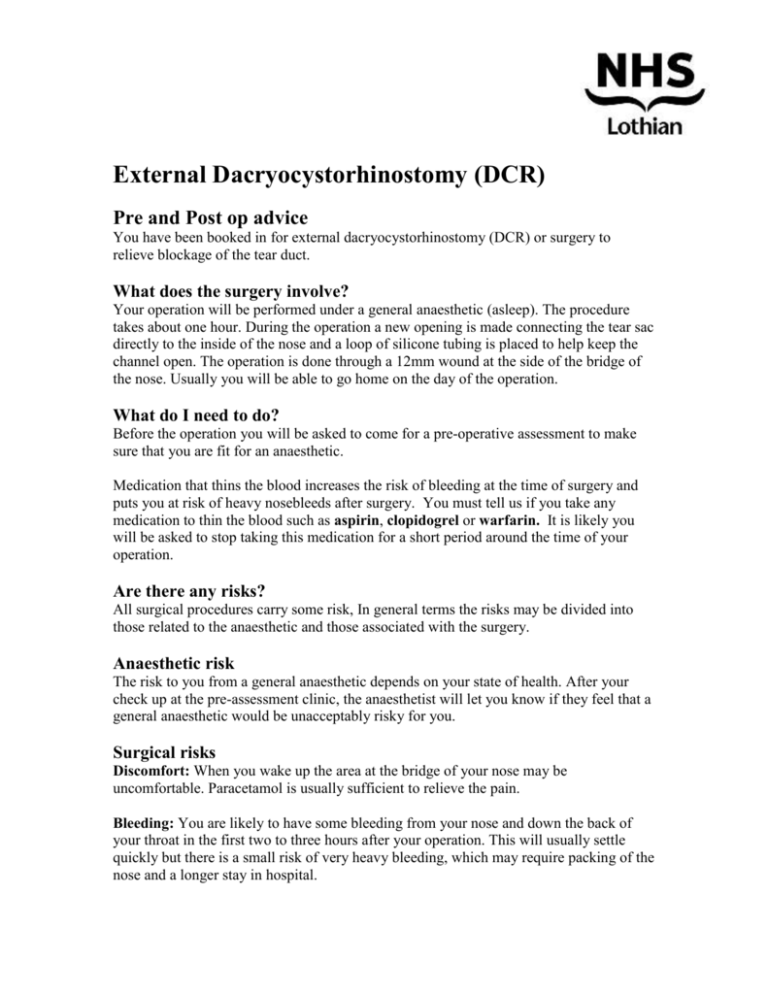
External Dacryocystorhinostomy (DCR) Pre and Post op advice You have been booked in for external dacryocystorhinostomy (DCR) or surgery to relieve blockage of the tear duct. What does the surgery involve? Your operation will be performed under a general anaesthetic (asleep). The procedure takes about one hour. During the operation a new opening is made connecting the tear sac directly to the inside of the nose and a loop of silicone tubing is placed to help keep the channel open. The operation is done through a 12mm wound at the side of the bridge of the nose. Usually you will be able to go home on the day of the operation. What do I need to do? Before the operation you will be asked to come for a pre-operative assessment to make sure that you are fit for an anaesthetic. Medication that thins the blood increases the risk of bleeding at the time of surgery and puts you at risk of heavy nosebleeds after surgery. You must tell us if you take any medication to thin the blood such as aspirin, clopidogrel or warfarin. It is likely you will be asked to stop taking this medication for a short period around the time of your operation. Are there any risks? All surgical procedures carry some risk, In general terms the risks may be divided into those related to the anaesthetic and those associated with the surgery. Anaesthetic risk The risk to you from a general anaesthetic depends on your state of health. After your check up at the pre-assessment clinic, the anaesthetist will let you know if they feel that a general anaesthetic would be unacceptably risky for you. Surgical risks Discomfort: When you wake up the area at the bridge of your nose may be uncomfortable. Paracetamol is usually sufficient to relieve the pain. Bleeding: You are likely to have some bleeding from your nose and down the back of your throat in the first two to three hours after your operation. This will usually settle quickly but there is a small risk of very heavy bleeding, which may require packing of the nose and a longer stay in hospital. Infection: Infection after DCR is rare. You will be given antibiotic ointment and drops to use as a precaution and you will also be given a short course of antibiotic tablets if there were signs of infection in the tear sac at the time of your operation. Scarring: You will have a scar at the side of your nose, which will be visible at first but will gradually fade. Usually the scar is difficult to see after four months, but in a few people the scar can remain raised and visible for longer. What should I expect after the operation? You should plan to take things easy for the first week after the operation and expect to be off work for a week. You will have drops to put in your eye and ointment for the skin. You may also be given antibiotic tablets to take for five days. Your eye may still be watery at first but often the watering shows some improvement before the tube is removed. You are likely to have some bruising and discomfort and you should take paracetamol and use an icepack on the bridge of the nose if required during the first 24 hours. You will be able to see the silicone tube at the corner of your eye passing between the opening of the ducts in the upper and lower lids. You must take care not to pull or catch the loop when putting drops in your eye. Occasionally the loop of tubing can slip out and become more visible, resting on the surface of the eye. If this happens it is OK to gently push it back. You may also be able to feel the end of the tube inside your nose. It is important that you do not pull it. You will have stitches in the wound at the side of your nose. You should try to keep the area clean and dry and the stitches will be removed one week after your operation. You will be given an appointment to come back to the clinic six weeks after the operation to have the silicone tube removed. There is a risk of nose bleed for the first seven days after surgery and to minimise the chance of this you are advised the following: No hot drinks for 24 hours No nose blowing for 7 days (use steam inhalation) Avoid strenuous exercise Avoid medication containing aspirin unless advised otherwise by your doctor You should contact the hospital for advice if: You have a nose bleed that doesn't settle You have increasing redness and swelling around the wound You have any difficulties with the drops and/ or tablets. You have any difficulties with the silicon tube. CONTACT NUMBERS: Monday to Thursday 9-5pm and Friday 9am to 1pm St John’s Hospital Eye Dept 01506 524 286 / 282 or Ward E2, Eye Pavilion 0131 536 1172 / 1772 Evenings, weekends & Friday afternoons Ward E2, Eye Pavilion 0131 536 1172 / 1772
